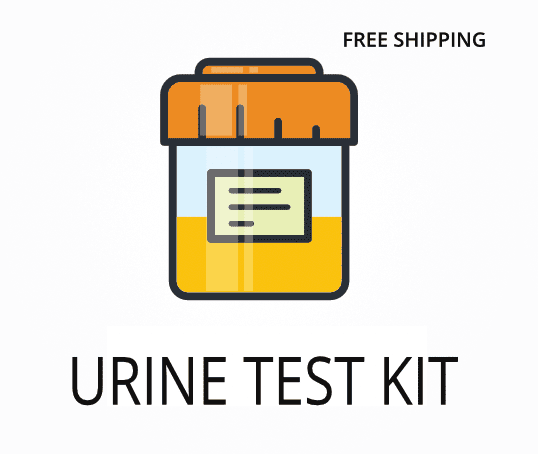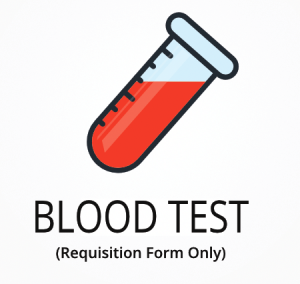Ordering the Urine Essential Elements | New York
Urine Essential Elements testing helps check for imbalances in minerals and trace elements that can affect energy, mood, and body function. This test can help find issues with nutrient absorption, kidney function, and possible exposure to heavy metals. Interestingly, some minerals like molybdenum and vanadium, though needed in tiny amounts, play a role in how the body processes toxins and supports enzyme activity.
Ordering this test can help you:
- Identify mineral deficiencies that may be linked to fatigue, hair loss, or muscle weakness
- Detect heavy metal exposure that could cause headaches, dizziness, or skin rashes
- Monitor kidney function by measuring how well minerals are filtered and excreted
- Support immune function by checking for elements like zinc and selenium
- Track the effectiveness of detoxification or chelation therapies
Who Should Consider Mineral and Heavy Metal Screening
People who have ongoing tiredness, trouble focusing, or mood changes that don’t improve with rest or diet changes may benefit from this test. For example, someone who has tried different supplements and diets but still feels run down and forgetful could use this test to find out if a mineral imbalance or heavy metal exposure is the cause.
Ordering this test may also be helpful if you:
- Have unexplained joint pain, muscle cramps, or weakness
- Notice changes in weight, appetite, or digestion without a clear reason
- Experience frequent headaches, dizziness, or skin rashes
- Live or work in an environment with possible exposure to metals or chemicals
- Have a family history of mineral metabolism disorders, which can sometimes show up as mood swings or memory problems
Testing for mineral and heavy metal levels can help pinpoint the cause of symptoms like fatigue, brain fog, or digestive problems, and guide targeted changes in diet or treatment. Delaying this test could mean missing the chance to address a correctable imbalance before symptoms get worse or become harder to manage.
Preparing for Your Mineral and Trace Element Analysis
Fasting is not required for this test, but you may be asked to avoid certain supplements or foods before collecting your urine sample. Always follow any instructions your doctor or healthcare provider gives you to make sure your sample is collected the right way and your results are as useful as possible.
Labs Included When Ordering Your Urine Essential Elements | New York
| Test Name | Reference Range | What It Means | Low and High Levels of Urine Essential Elements | New York |
|---|---|---|---|
| Boron | 0.5 – 3.0 | Boron helps the body use calcium and magnesium and supports bone and brain function. It also plays a role in hormone balance and cell health. | High levels mean possible overexposure or supplement use.
Low levels mean possible poor intake or absorption, which may affect bone and brain function. |
| Calcium | 50 – 250 | Calcium is needed for strong bones, muscle movement, and nerve signals. It also helps with blood clotting and heart rhythm. | High levels mean possible bone breakdown or kidney issues.
Low levels mean possible deficiency or problems with absorption, which can cause muscle cramps or weakness. |
| Chromium | 0.1 – 1.0 | Chromium helps the body use insulin and keep blood sugar steady. It also supports fat and protein metabolism. | High levels mean possible overexposure or supplement use.
Low levels mean possible poor blood sugar control or low dietary intake. |
| Cobalt | 0.05 – 0.5 | Cobalt is part of vitamin B12, which is needed for making red blood cells and keeping nerves healthy. | High levels mean possible overexposure or supplement use.
Low levels mean possible B12 deficiency, which can cause tiredness or nerve problems. |
| Copper | 5 – 50 | Copper helps make red blood cells, supports the immune system, and is needed for brain development and energy production. | High levels mean possible overexposure or liver issues.
Low levels mean possible deficiency, which can cause anemia or immune problems. |
| Iron | 10 – 40 | Iron is needed to make hemoglobin, which carries oxygen in the blood. It also supports energy and brain function. | High levels mean possible overexposure or supplement use.
Low levels mean possible anemia, tiredness, or poor concentration. |
| Lithium | 0.01 – 0.2 | Lithium is a trace element that may help with mood balance and brain function. It is also used in some medications. | High levels mean possible overexposure or medication use.
Low levels mean possible low intake, but deficiency is rare. |
| Magnesium | 60 – 120 | Magnesium helps muscles and nerves work, keeps the heartbeat steady, and supports bone strength and energy production. | High levels mean possible kidney issues or overuse of supplements.
Low levels mean possible muscle cramps, weakness, or tiredness. |
| Manganese | 0.1 – 1.0 | Manganese helps with bone formation, wound healing, and how the body uses carbohydrates and fats. | High levels mean possible overexposure or supplement use.
Low levels mean possible bone or growth problems. |
| Molybdenum | 0.02 – 0.15 | Molybdenum helps enzymes break down toxins and supports the body’s use of sulfur-containing amino acids. | High levels mean possible overexposure or supplement use.
Low levels mean possible problems with detoxification or metabolism. |
| Phosphorus | 400 – 1300 | Phosphorus is needed for strong bones and teeth, energy storage, and cell repair. | High levels mean possible kidney issues or overuse of supplements.
Low levels mean possible bone weakness or muscle problems. |
| Potassium | 15 – 70 | Potassium helps control muscle movement, nerve signals, and fluid balance in the body. | High levels mean possible kidney issues or overuse of supplements.
Low levels mean possible muscle weakness, cramps, or irregular heartbeat. |
| Selenium | 10 – 50 | Selenium supports the immune system, helps protect cells from damage, and is needed for thyroid function. | High levels mean possible overexposure or supplement use.
Low levels mean possible immune or thyroid problems. |
| Sodium | 40 – 220 | Sodium helps control fluid balance, muscle movement, and nerve signals. | High levels mean possible dehydration or kidney issues.
Low levels mean possible overhydration or adrenal problems. |
| Strontium | 0.02 – 0.2 | Strontium is similar to calcium and may help support bone strength and structure. | High levels mean possible overexposure or supplement use.
Low levels mean possible low intake, but deficiency is rare. |
| Sulfur | 5 – 25 | Sulfur is needed for making proteins, detoxifying chemicals, and supporting joint and skin health. | High levels mean possible overexposure or high protein intake.
Low levels mean possible problems with protein metabolism or detoxification. |
| Vanadium | 0.001 – 0.01 | Vanadium is a trace element that may help with blood sugar control and enzyme function, though its role in the body is still being studied. | High levels mean possible overexposure or supplement use.
Low levels mean possible low intake, but deficiency is rare. |
| Zinc | 100 – 800 | Zinc supports the immune system, helps wounds heal, and is needed for taste, smell, and DNA production. | High levels mean possible overexposure or supplement use.
Low levels mean possible immune problems, slow healing, or loss of taste and smell. |
Reference ranges may change slightly as labs update their methods or as new research becomes available. Always check your report for the most current reference values.
Urine Essential Elements | New York FAQ
Is there Urine Essential Elements | New York testing near me?
This is a home test kit that you can collect locally, and you can check the draw location link at the top of the page for more details. If you have symptoms like ongoing fatigue or brain fog, being able to collect your sample at home makes it easier to get answers without extra travel or waiting.
How do I interpret the test results?
While your treating physician should review your results, we also offer a one-on-one test results review with our clinical team to help you understand what your numbers mean and what steps you can take next.
What is the cost of the test?
The price you see for this test includes standard shipping to you and return shipping to the lab, but draw fees may apply. Ordering this test can help you find out if mineral imbalances or heavy metal exposure are slowing your recovery, so you can address the cause sooner.
How often should I retest?
Retesting is usually recommended every 3 to 6 months, especially if you are making changes to your diet, supplements, or treatment plan. Regular testing helps track your progress and shows if your mineral and heavy metal levels are improving or if further changes are needed.
How accurate is the test?
This test uses inductively coupled plasma mass spectrometry (ICP-MS), which is highly sensitive and specific for detecting trace elements in urine. The specificity is 99% and sensitivity is 98%. TrueHealthLabs.com partners with CLIA-certified and CAP-certified laboratories to uphold rigorous testing standards for dependable results.
Important Notes
None.
Medical Review Board
Reviewed by Jeff Donohue M.D. from Body Logic and Brady Hurst DC, CCCN. Written by True Health Lab’s team of editorial health contributors.
Disclaimer: This information is for educational purposes only and not intended as medical advice. Consult your healthcare provider for personalized guidance.
Why Customers Trust True Health Labs - What People are saying
Also rated 4.6 out of 5 based on 3452 ShopperApproved reviews- See all TrueHealthLabs.com reviews.









